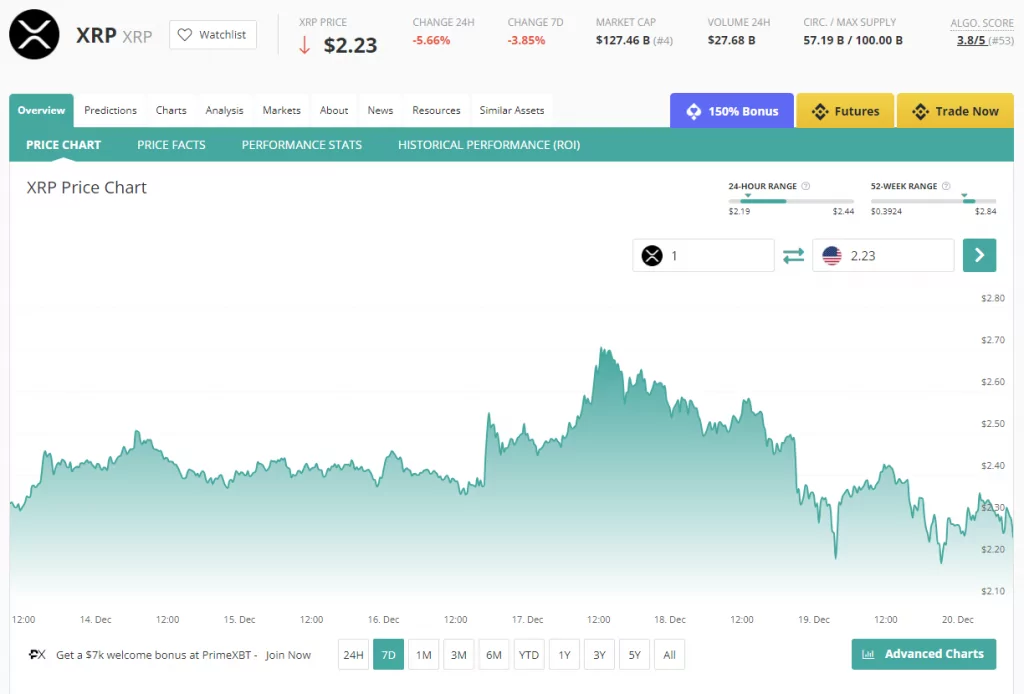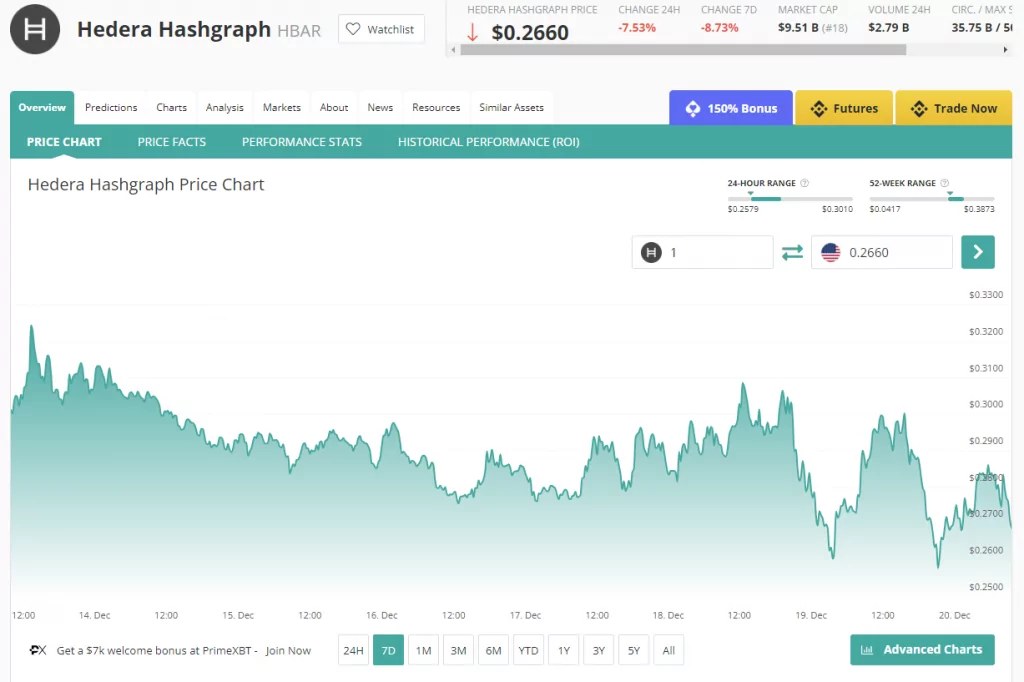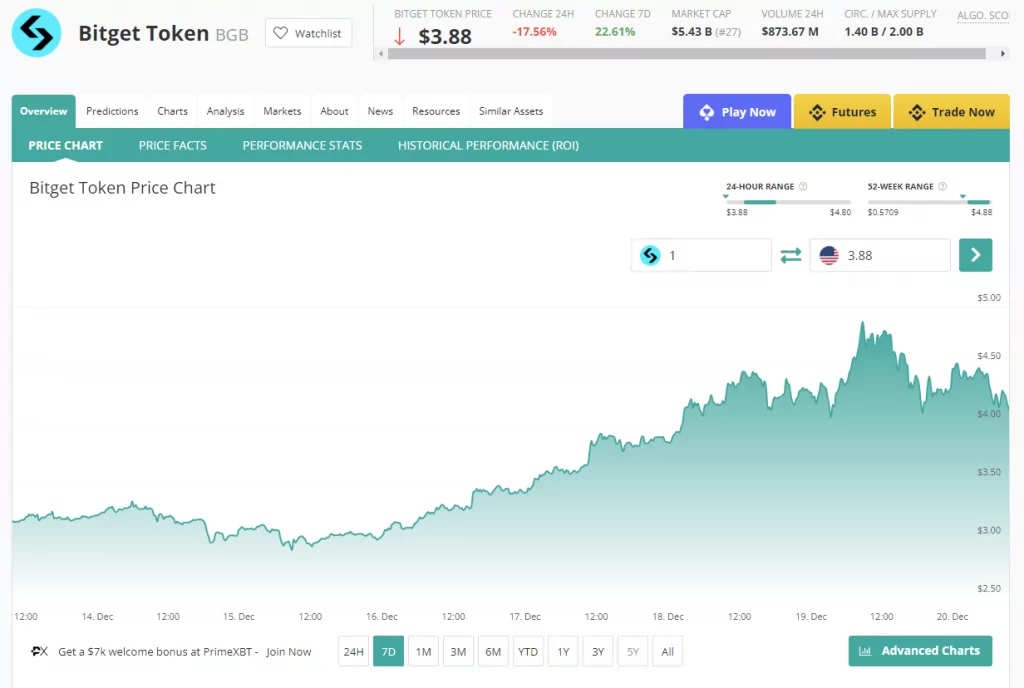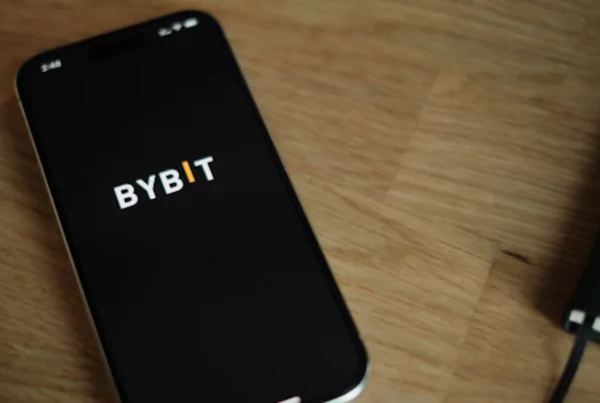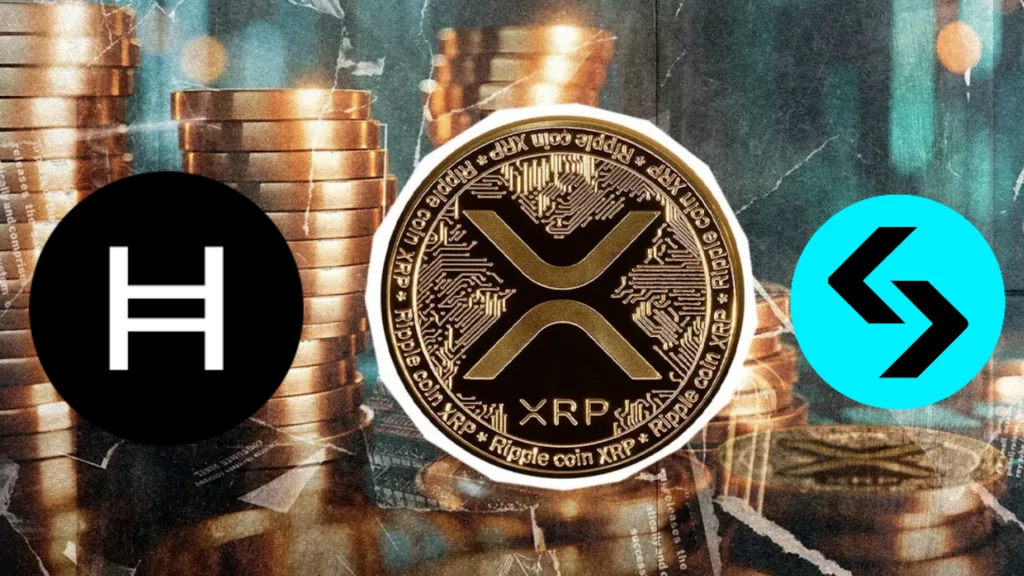
The crypto market is on fire this December, and if you’ve been paying attention, you already know things are heating up fast. While Bitcoin has already made headlines, it’s coins like XRP, Hedera (HBAR), and Bitget Token (BGB) that are showing the most exciting gains (among the large, fairly well-known cryptocurrencies).
But you need to know where to store and manage your coins efficiently. This helps you maximize your profits and, more importantly, protect your funds. Using a product like NOW Wallet, a non-custodial cryptocurrency wallet, can go a long way toward achieving this goal.
In this article, we’ll break down why these 3 altcoins are surging right now and what wallets you should be storing your altcoins in.
Top 3 Crypto movers in December: Performance and key drivers
XRP (XRP)
XRP has been riding a bullish wave in December, delivering an impressive 40% surge in value over the past weeks. After years of regulatory uncertainty and issues with lawsuits, it seems like XRP is finally reclaiming its spot as a top-performing altcoin.
Key factors for great performance:
- Ripple-SEC Lawsuit Developments: The Ripple vs. SEC lawsuit has been a dark cloud over XRP for years. But recent court decisions have tilted in Ripple’s favor. Also, Gary Gensler’s leaving is enough to make any crypto enthusiast smile. All of this increases investor confidence and buying pressure.
- Global Partnerships: Ripple continues to secure partnerships with global financial institutions like Santander and Standard Chartered, so it’s increasing in adoption for cross-border payments.
Hedera (HBAR)
From December 1st to 3rd, Hedera’s native token, HBAR, more than doubled in value, going from $0.16 to $0.38. It is currently cooling off at $0.27 at the time of writing, but it’s likely to get back to its impressive performance sooner or later.
Key factors for great performance:
- Enterprise Adoption: Unlike most blockchains, Hedera uses Hashgraph technology, which allows for lightning-fast, energy-efficient transactions. Big players like Google, IBM, and LG are part of Hedera’s governing council, signaling trust and scalability.
- Partnerships and Use Cases: HBAR is finding utility in everything from DeFi and NFTs to sustainability projects like carbon credits and supply chain management. Enterprises love its reliability and low-cost structure.
Integrations: As a proof-of-stake network, Hedera has been integrating with other projects in crypto, and a lot of those projects are parts of hot narratives. The latest of those, as of December 16, has been its integration with Chainlink, which takes transparency to the next level, thereby enabling seamless access to high-quality, tamper-proof data
Bitget Token (BGB)
BGB, the native token of the Bitget exchange, has skyrocketed from $1.60 to $4.09 in just over three weeks in December. Exchange tokens once used to be barely more than a gimmick, but it seems those days are over.
Key factors for great performance:
- Exchange Growth: Bitget is rapidly expanding its user base, becoming one of the go-to platforms for crypto trading. Increased trading volumes are increasing demand for BGB.
- Utility and Incentives: BGB holders benefit from a range of perks, including trading discounts, staking rewards, and exclusive promotions. This utility makes it attractive for traders.
Where to store and manage XRP, HBAR, BGB and other altcoins?
NOW Wallet: A strong option for altcoin management
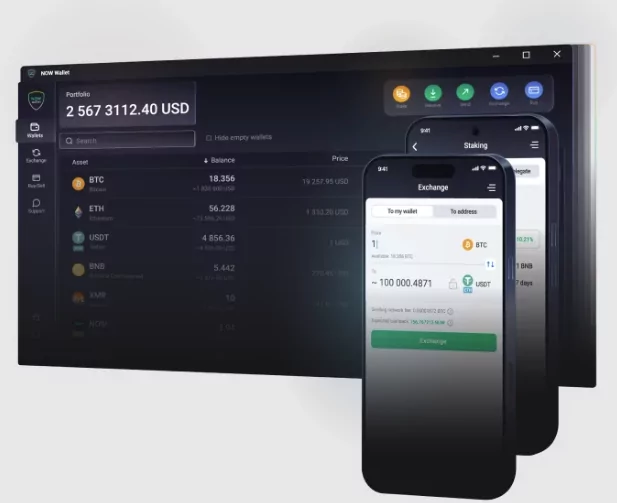
If you’re looking for a secure and flexible way to store XRP, HBAR, and BGB, NOW Wallet is a solid contender. It’s a non-custodial wallet, which means you’re fully in control of your crypto. This is a must in a market as unpredictable as this one.
So, what’s the deal with this wallet?
For starters, NOW Wallet supports over 70 blockchains and 1,500+ tokens, including XRP, HBAR and BGB. You won’t need to jump between wallets or worry about compatibility because everything’s in one place. We appreciate the ease of use they obviously had in mind.
It also makes managing crypto convenient. There’s a built-in exchange feature, powered by ChangeNOW, so you can swap coins directly within the wallet. It’s fast, easy to use, and ideal for when markets are moving quickly.
From a security perspective, NOW Wallet gets the basics right. With three-layer encryption, PIN protection, and biometric options, it’s reliable for everyday use. However, as with all non-custodial wallets, you’ll need to manage your private keys carefully – lose your recovery phrase, and you’re out of luck.
The wallet’s fiat-to-crypto and crypto-to-fiat options are also good to have. You can buy and sell crypto using 60+ fiat currencies with credit cards, Apple Pay, or bank transfers, which is great for beginners or anyone looking for convenience.
NOW Wallet is compatible with WalletConnect, which connects you directly to a massive collection of dApps on multiple blockchains, opening a lot of doors for borrowing, lending, yield farming, blockchain gaming, and so on.
It’s also worth noting that NOW Wallet has great customer support, which can handle problematic transactions that involve wrong tokens, networks, or deposit amounts quickly and professionally.
The app is available for both mobile and desktop, with the mobile version feeling particularly polished, and users can easily synchronize their wallets across devices using mnemonic phrases.
The verdict?
NOW Wallet combines flexibility, security, and ease of use, making it a strong pick for storing altcoins like XRP, HBAR, and BGB. If you’re looking for a wallet that balances convenience and control, NOW Wallet ticks the key boxes. For more information, make sure to check out our NOW Wallet review.
MetaMask: A popular choice – but not without its flaws
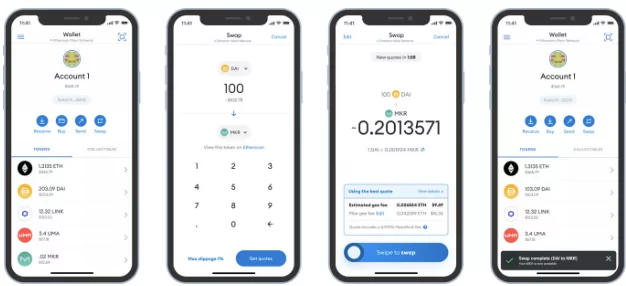
If you’re into Ethereum, or even crypto in general, you’ve probably heard of MetaMask. It’s pretty much the go-to wallet for ETH and ERC-20 tokens. You can store your assets, connect to decentralized apps (dApps), and manage your digital finances easily, whether through the browser extension or on mobile.
It’s simple, intuitive, and open-source, which means the code is out there for everyone to see. That transparency builds trust, and in crypto, trust goes a long way.
But here’s where it gets a little tricky. While MetaMask nails Ethereum and networks that play nice with Ethereum, it doesn’t natively support a whole lot beyond that. Sure, you can manually add Binance Smart Chain or Polygon if you’re willing to tweak a few settings, but for the average user, that extra step might feel like a hassle.
And if you’re looking to hold assets like XRP? Best of luck. You’ll need workarounds, like third-party services or wrapping tokens, and that can get messy fast. Not to mention it introduces extra risks.
Then there’s the security side of things. MetaMask is a hot wallet, meaning it’s always connected to the internet, which leaves it open to potential attacks. Plus, it skips out on key security features like two-factor authentication and multisig. In a space where security is hugely important, those gaps aren’t easy to ignore.
The verdict?
So, where does that leave us? MetaMask is a solid option for Ethereum die-hards and DeFi enthusiasts. It’s got dApp integration down to an art. But if you’re managing a diverse portfolio across multiple chains or looking for tighter security, you’ll probably hit its limits pretty quickly. In that case, you might want to explore wallets with broader blockchain support and beefed-up safety features.
Trust Wallet: Versatile wallet with trade-offs
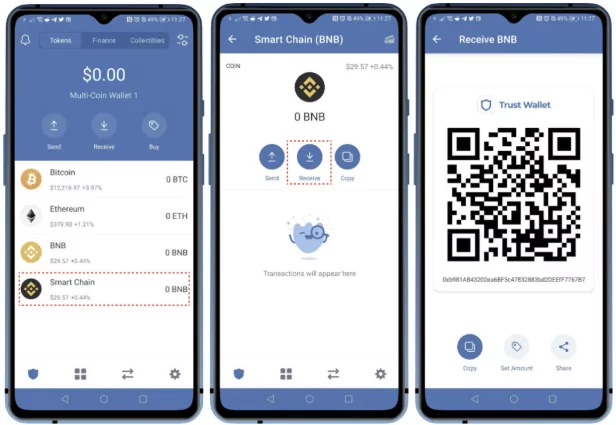
If you’re looking for a wallet that can handle a little bit of everything, Trust Wallet might just be your go-to. It’s a non-custodial mobile wallet that supports a huge range of cryptocurrencies, which makes it a big win for anyone managing a diverse portfolio. Add to that its seamless integration with dApps, and you’ve got a tool that’s built for the modern crypto user.
That said, Trust Wallet isn’t without its trade-offs. While it provides the standard security features you’d expect, it skips advanced options like two-factor authentication and multisignature support. These are features that could make a real difference for users focused on securing their assets.
Another thing to keep in mind is customer support. Mostly limited to email, and that often means slow response times. If something goes wrong, waiting around for help just doesn’t feel good.
Then there’s the mobile-first design. Trust Wallet works like a charm on mobile devices, but if you’re someone who prefers managing your assets on a desktop, it’s not as straightforward. Sure, there are workarounds, but they’re not as clean or convenient as having a dedicated desktop app.
The verdict?
Trust Wallet is an excellent option for anyone juggling multiple cryptocurrencies, thanks to its broad asset support and smooth dApp integration. But if you’re after advanced security features, faster customer support, or a hassle-free desktop experience, you might want to explore other wallets that tick those boxes.
Ledger Wallet: Leading hardware solution with a focus on security
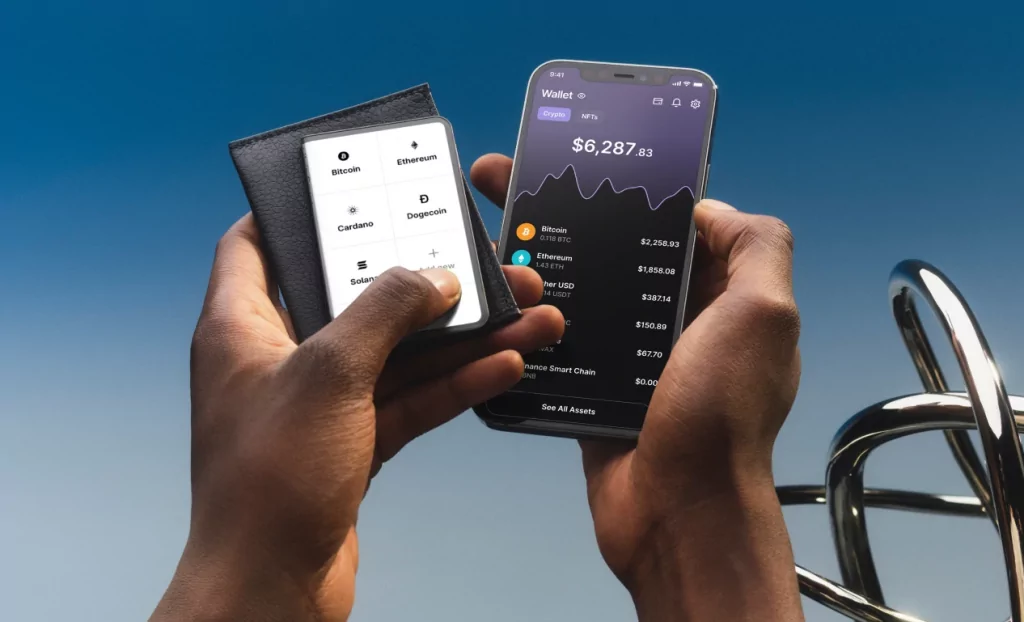
Ledger wallets are among the most trusted and widely used hardware wallets, offering unmatched security for digital assets. They are designed to protect private keys, the critical element for accessing and managing cryptocurrencies, in an offline environment, making them highly resistant to hacking attempts.
The company offers a range of models, each catering to different user needs, from entry-level holders to advanced traders. For instance, the Ledger Nano S Plus is ideal for beginners with its affordability and core features, while the Ledger Nano X is a premium option with Bluetooth connectivity and a larger screen, perfect for managing multiple cryptocurrencies on the go. Then there are the newer Ledger Flex and Ledger Stax (pictured in the image), which are more modern and have a broader selection of features, highlighted by a large e-ink display.
One of Ledger’s standout features is its support for a vast range of cryptocurrencies – over 5,500 tokens and coins, including Bitcoin, Ethereum, and altcoins like Solana and Polkadot. This extensive compatibility makes Ledger wallets highly versatile for diverse portfolios. Additionally, Ledger devices are known for their robustness and user-friendly design. The sleek and compact form factor ensures easy portability, while the secure hardware chip (CC EAL5+ certified) guarantees top-notch security, adhering to industry-leading standards.
Complementing the hardware wallets is the Ledger Live suite, an all-in-one application for managing cryptocurrencies seamlessly. Ledger Live provides users with the ability to view real-time portfolio values, send and receive transactions, and stake supported assets for earning rewards – all from a single dashboard. The app also integrates additional security layers, such as two-factor authentication, to safeguard operations. The company has ventured into integrating DeFi applications, NFT management, and token swapping directly through the Ledger Live app.
The verdict?
Thanks to their robust security and relative ease of use, Ledger wallets are the most popular hardware solution for managing crypto assets. If you value security over convenience, then you can hardly go wrong with either of Ledger wallet models.
Electrum: Bitcoin-focused with advanced features
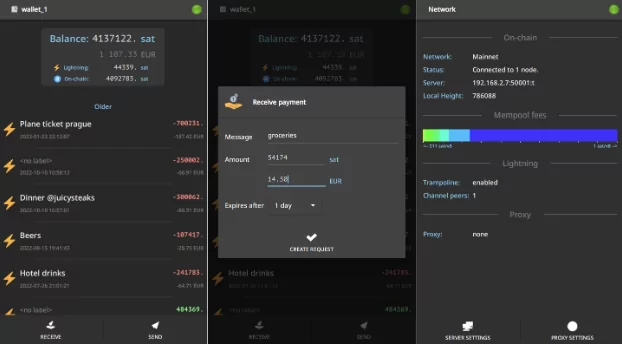
If you’re into Bitcoin, Electrum is your pick. It’s been around for years, it’s open-source, and it runs like a dream – fast, lightweight, and low on resource usage. Designed specifically for desktops, it works great across Windows, Mac, and Linux.
Electrum’s focus is on efficiency. Unlike wallets that require you to download the entire Bitcoin blockchain, Electrum keeps things lean. Add to that support for hardware wallets and the ability to customize transaction fees, and you’ve got a tool that’s clearly built for experienced Bitcoin users who want control and speed.
Okay, so what’s the catch? Well, there isn’t a catch, really. Electrum does exactly what it sets out to do – it focuses on Bitcoin and only Bitcoin. If you’re managing a mix of assets like XRP, HBAR, or BGB, this wallet isn’t going to cut it. Its single-focus design makes it a no-go for anyone with a more diverse crypto portfolio.
Then there’s the issue of security. Despite its strong reputation, Electrum hasn’t been immune to vulnerabilities. Older versions of the wallet were targeted in the past, with one exploit reportedly causing losses of around $25 million. That’s no small number, and it’s a stark reminder of how important it is to stay updated and vigilant when using Electrum.
And let’s be honest, the interface isn’t the friendliest. The wallet is packed with advanced features, which is great for experienced users, but it can be intimidating for beginners.
The verdict?
Electrum is an excellent choice for Bitcoin fans who know their way around a wallet and want a lightweight, no-nonsense solution with advanced options. But if you’re juggling multiple cryptocurrencies, or just starting out, this wallet might not be the best fit. If you go with Electrum, stay sharp, keep your software updated, and consider using additional security measures to protect your Bitcoin.
The bottom line
In December 2024, altcoins like XRP, HBAR, and BGB were pumping, capturing the attention of investors. As the crypto market revs up looking into 2025, you need a secure and versatile wallet to manage your assets and keep them safe.
All of the wallets we mentioned have things going for them, and while there are certainly differences between them, you probably won’t go wrong with whichever one you choose. It mostly depends on your own needs and preferences.

